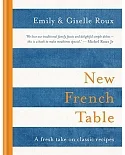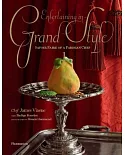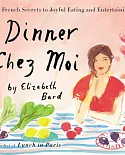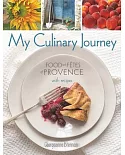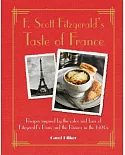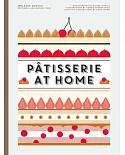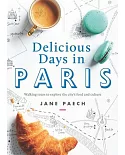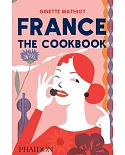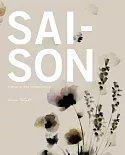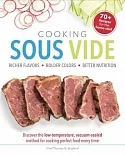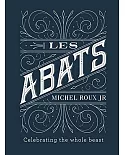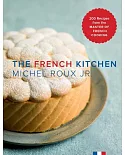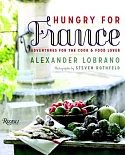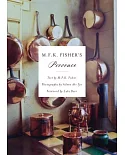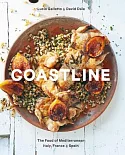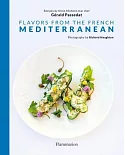First published in 1927 to educate French housewives in the art of classical cooking, LA BONNE CUISINE DE MADAME E. SAINT-ANGE has since become the bible of French cooking technique, found on
every kitchen shelf in France. A housewife and a professional chef, Madame Evelyn Saint-Ange wrote in a rigorous yet highly instructive and engaging style, explaining in extraordinary detail
the proper way to skim a sauce, stuff a chicken, and construct a p璽t矇 en cro羶te.Though her text has never before been translated into English,Madame Saint-Ange's legacy has lived on through the
cooking of internationally renowned chefs like Julia Child and Madeleine Kamman, setting the standard for practical home cooking as well as haute cuisine. In this momentous translation by Chez
Panisse cofounder and original chef de cuisine Paul Aratow, Madame Saint-Ange's culinary wisdom is available in English for the first time.Enveloped in charming intricacies of even the most
fundamental cooking techniques are 1,300 authentic French recipes for such classics as Braised Beef, Quiche Lorraine, Cassoulet, and Apricot Souffl矇; original illustrations of prepping and
cooking techniques; and seasonal menus for every meal of the day. An indispensable culinary encyclopedia and an absorbing historical document, LA BONNE CUISINE DE MADAME E. SAINT-ANGE is the
definitive word on French cooking for food lovers, dedicated cooks, culinary professionals, and Francophiles alike.Reviews:“[A] book that I adore and that was my mentor in my early days in
France. . . . It was a carefully thought-out, very personal book, and one had complete confidence in what she had to say. . . . I still love it.”—Julia Child (Simple Cooking, “Reminisces,”
1989) “It would be difficult to overestimate the service rendered to monolingual English and American cooks by the translation of this massive, instructive, and, in its way, very funny
book.”—Gourmet “This warhorse of French cookery . . . is a proudly hidebound volume on the (Thoroughly French) Right Way to Cook. . . . The book reads like The Joy of Cooking for the dominatrix
set. Still, it's hard not to love a writer with such dramatic flair.”—Bon Appetit “If you want to add one new definitive cookbook to your larder, we suggest the English edition of LA BONNE
CUISINE. . . . This is the tome that got Julia Child cooking as a postwar bride in Paris.”—Los Angeles Magazine “[T]his magisterial translation offers a window into a bygone moment in French
life and is a testament to the enduring joy of cooking with cookbooks.”—Publishers Weekly Starred Review “The gift for the serious cookbook lover who has everything. . . . [T]he go-to manual of
the French home kitchen.”—San Francisco Chronicle “[A] tidy how-to treatise on traditional (and ambitious) home cooking by a working mother in Paris in the first half of the 20th century.”—New
York Times Magazine “[A] fascinating work, at once an encyclopedia of the basic techniques o cooking and a snapshot of French cuisine as it existed in the early 20th century.”—Los Angeles Times
“[A]n important book for both food lovers and cooks, with fine explanations of exactly how to prepare the classic French dishes we Americans already love (and a few not yet
discovered).”—Traditional Home “A lasting feast for your foodie friends.”—Budget Living “One of the most detailed, interesting, well-written, and technically proficient books for the French
home cook. . . . I learned one hundred times more from it than I did from Escoffier and other great chefs.”—Madeleine Kamman“Julia Child . . . had been much influenced by Mme. Saint-Ange, who
in the 1920s wrote step-by-step instructions that guided French women through the intricacies, and also the simplicities, of cuisine bourgeoise.”—Corby Kummer, The Atlantic “Finally, this great
book has been translated. My French edition has lost its cover from thirty years of almost constant use. LA BONNE CUISINE DE MADAME E. SAINT-ANGE is filled with good sense, logic, and boundless
information about the world's best home cooking, and it is deeply grounded in the traditions and techniques that define a great cuisine. It's not just a book of recipes, but helps us master a
subtle and immensely satisfying art.”—James Peterson, author of Sauces“LA BONNE CUISINE DE MADAME E. SAINT-ANGE is the first French blockbuster written by a woman cook, and it remains my
favorite. Saint-Ange has a turn of phrase and a depth of culinary knowledge that have rarely been equaled. At first glance her book appears inordinately long, but she carries us without
faltering. Some recipes may take a couple pages of dense print to explain, but at the end you know you will emerge triumphant, with perfection on the plate.”—Anne Willan, founder of �cole de
Cuisine La Varenne“Among its many treasures, this marvelous book offers as clear a picture as we can ever hope to get of the workings of the French home kitchen at a time when the meals that
came from it were justly the pride of France. The supernaturally knowledgeable Madame Saint- Ange was to her country what Fannie Farmer was to America, but she had the better tools and the
better cuisine to work with, and she possessed a forthright Gallic charm entirely her own. For decades, the absence of this book in English translation has been a culinary embarrassment. Paul
Aratow has now decisively changed all that, for which he has my endless thanks.”—John Thorne, author of Simple Cooking and Pot on the Fire“With his masterful translation of LA BONNE CUISINE DE
MADAME E. SAINT-ANGE, Paul Aratow has done a great service to lovers of food, food lorists, and curious cooks everywhere. It's a Joy of Cooking and a Mastering the Art of French Cooking
stitched together with dishes from the French family home—all wrapped into one comprehensive volume that will entice and intrigue anyone interested in one of the major foundations of our new
American cooking.”—Victoria Wise, former chef of Chez Panisse“The classic cooking of Madame Saint-Ange—so fresh and so French—lives on as testament to a true passion for bonne cuisine and a
wonderful lesson in echnique.”—Daniel Boulud, chef of Daniel“This book will fascinate students of French gastronomy and those with a particular interest in the mores of middle-class French
households in the early part of the twentieth century. As a window into French cookery, it is an extraordinary work.When read alongside Escoffier, whilst the scope is very similar, Madame
Saint-Ange includes far more explanatory information, and although the tone is formal, it is also meticulous and often illuminating.”—Stephanie Alexander, author of The Cook's Companion“Styles
of cuisine may change, but the fundamentals are forever. There is more commonsense basic cooking instruction in this book than in most libraries.”—Russ Parsons, Los Angeles Times food columnist
and author of How to Read a French Fry



